Election 2020: Mail Ballots vs In-Person Voting And Everything To Know
Mail Ballots vs. In-Person Voting: Everything You Need To Know
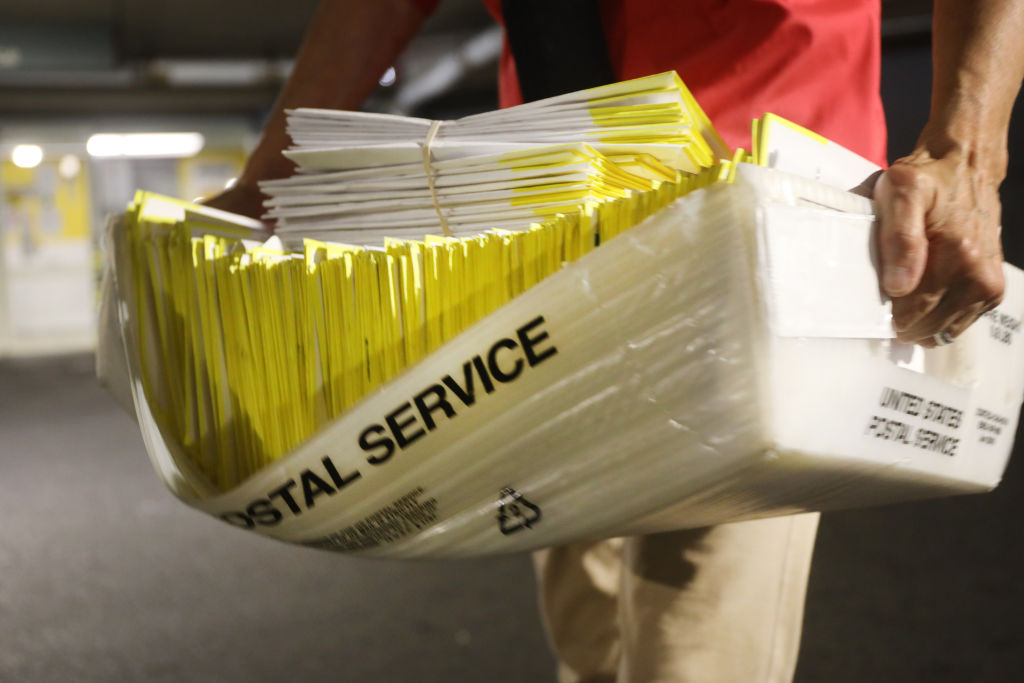
Source: Spencer Platt / Getty
With one of the most consequential elections in modern history rapidly approaching, efforts to get out the vote are seemingly at an all-time high. But the pandemic has complicated matters a bit amid partisan efforts to cast doubt about the effectiveness of mailing ballots as some voters may also be hesitant to visit polling places in-person amid coronavirus concerns.
Mail-in ballots could become the preferred or even default method of voting this year as the pandemic has prompted strict social distance guidelines that have prevented the swift tallying of ballots in states’ primaries. But Donald Trump, perhaps feeling vulnerable to Democratic nominee Joe Biden‘s surging candidacy, has encouraged in-person voting and decried mail ballots as being too susceptible to fraud. By discrediting mail ballots, Trump is seemingly betting that Americans could decide against voting in-person over lingering coronavirus fears. A lack of voter participation arguably contributed to Trump’s election in 2016.
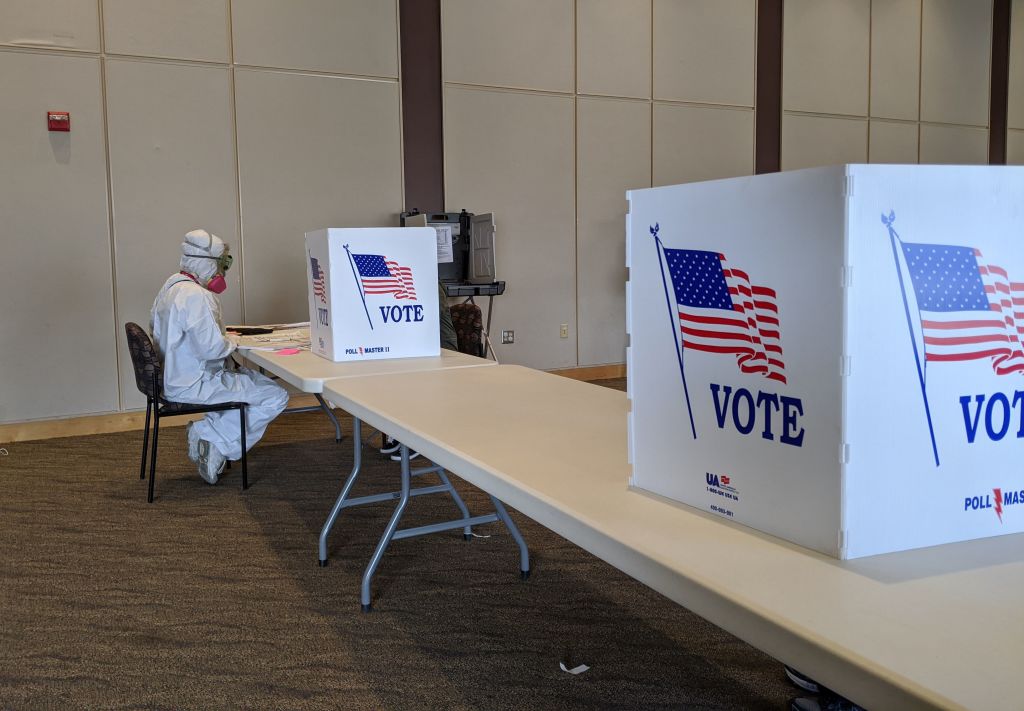
Source: DEREK R. HENKLE / Getty
To be sure, the president has also put obstacles in place to deter mail ballots, like appointing Louis DeJoy, a Republican operative, to lead the United States Postal Service as the postmaster general, prompting accusations of him attempting to rig the election in his favor. But research has shown that voting by mail is rarely subject to fraud, does not give an advantage to one political party over another and, if done properly, can inspire public confidence in the voting process.
With that said, the above choices are not the only ones you have when deciding how — and when — to vote. Here’s everything you need to know about mail-in ballots vs. in-person voting ahead of Election Day.
Register To Vote
If you really want to vote, then there is a series of requirements that must be taken care of first, including being at least 18 years old. If you’ve already met that primary eligibility stipulation, then the next step is to register to vote if you haven’t done so already.
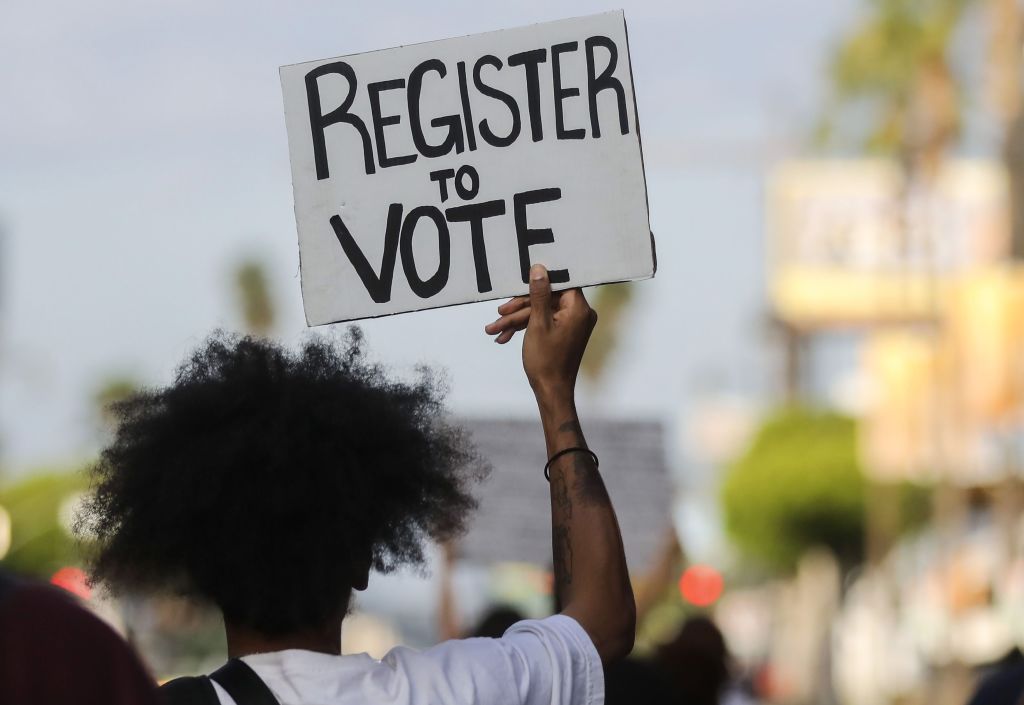
Source: Mario Tama / Getty
Deadlines to register to vote vary per state, but for the most part, there is still time to register — and it can be done online. “As of August 2020, a total of 40 states offer online registration, and one other state (Oklahoma) has passed legislation and is currently phasing in implementation of their online registration,” according to the National Conference of State Legislatures. Find your if your state offers online voter registration by clicking here.
The National Mail Voter Registration Form is also available online and is offered in 15 languages to accommodate people from all backgrounds who want to register to vote. However, the form must be submitted via the mail. You can also contact your local city and state governments, election board or just click here to learn more information about registering to vote.
Time Is Of The Essence
With just 60 days until the election, it’s imperative that voters expedite the process by moving as fast as possible to make sure their ballots get counted. Once you’re registered to vote, you can either wait until Election Day and cast your ballot in-person or you can request an absentee ballot to vote remotely.
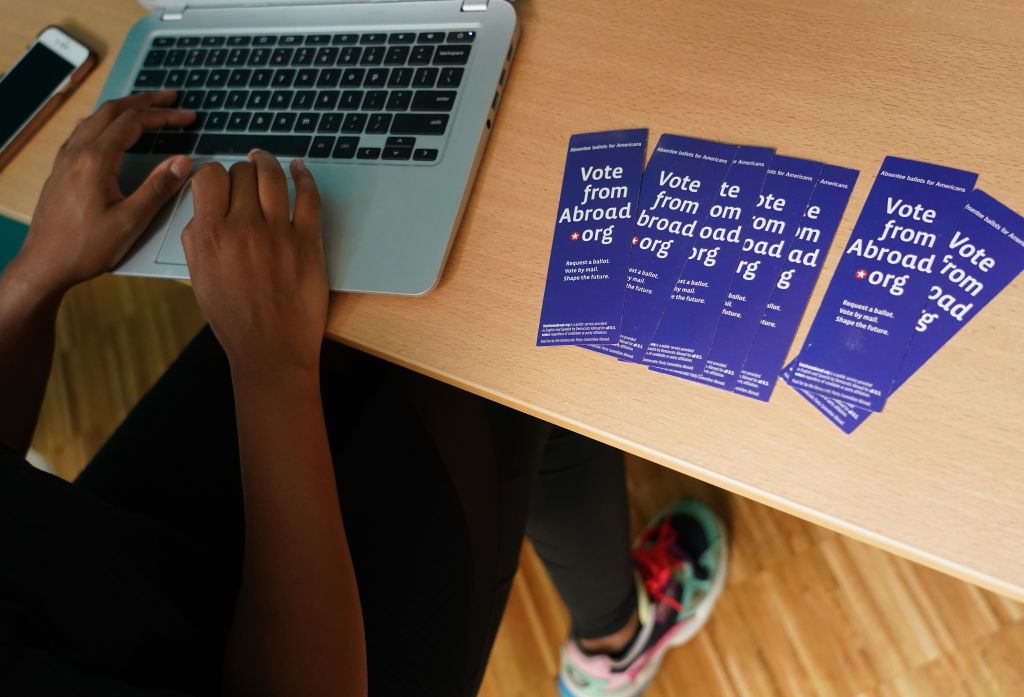
Source: Sean Gallup / Getty
One major asterisk: While some states allow voters to request mail-in ballots up until the last minute before an election, the New York Times warned: “it may not be feasible for their ballots to be mailed to them and sent back to election officials in time to be counted.”
A reminder: There is no online voting.
Request An Absentee Ballot
Mail ballots — more commonly known as absentee ballots — have traditionally been popular voting options for everybody from servicemen in the military to ex-patriots living abroad to college students living out-of-state. Absentee ballots typically require reasons for not voting in-person — like sickness or traveling for business — but the coronavirus has eliminated that barrier. Rules for voting via absentee ballots are also state-specific. Find absentee ballot information about your state by clicking here.
Early Voting
Absentee ballots don’t only have to be mailed in. Voters can also cast their ballots early by dropping them off in advance at their local boards of election. However, there are still strict deadlines associated with voting early. Find those state-specific deadlines by clicking here and/or here.
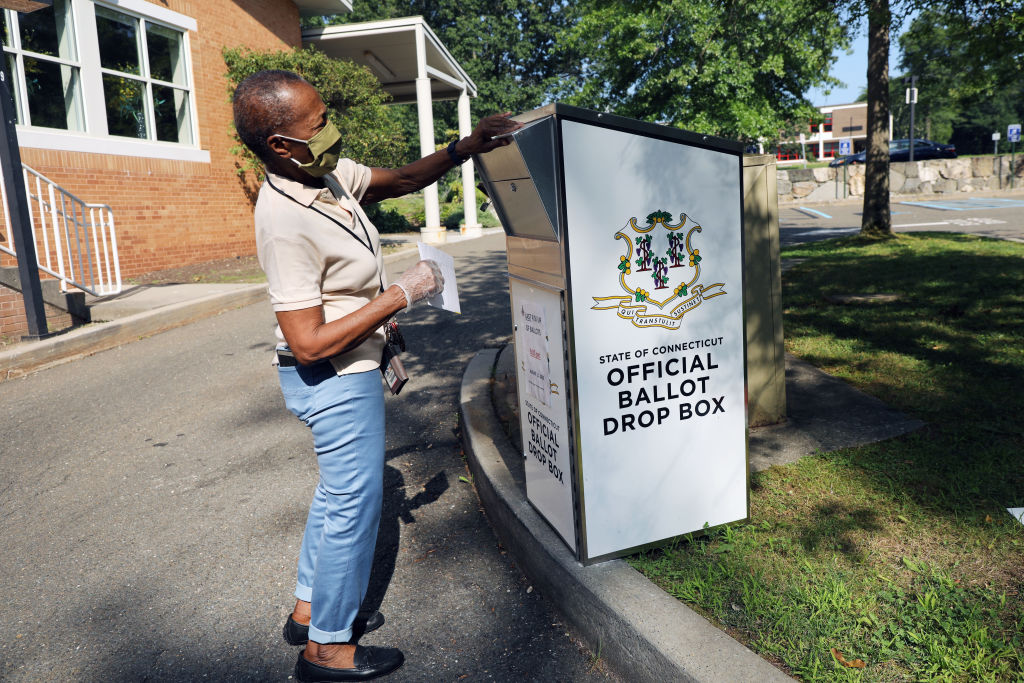
Source: Spencer Platt / Getty
Voting In-Person
Voting in-person is still a viable option. But some voters may be discouraged at the prospects of standing in lines that will appear to be longer than they really are because of social distancing guidelines.
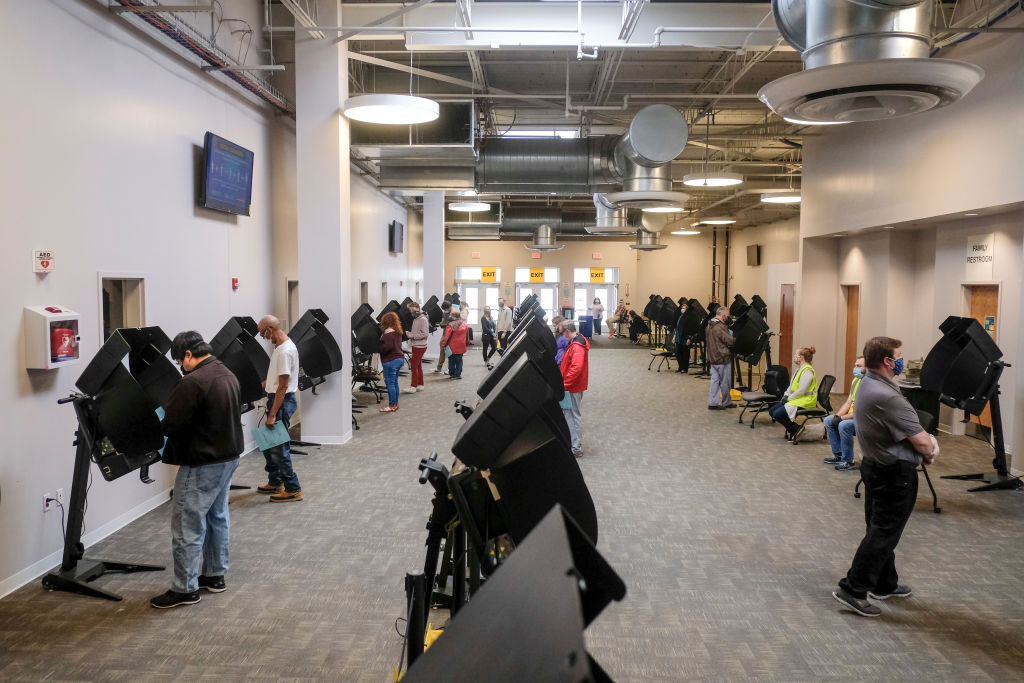
Source: Matthew Hatcher / Getty
Vote Like Your Life Depends On It
Because it just might.
SEE ALSO:
Trump Names Crony To Lead USPS Ahead Of Election Where Mail Ballots Matter More Than Ever
Don’t Believe The Hype: Mail-In Voting Is Safe, Reliable And Trustworthy


















